The King and I: timeless classic or dated relic?
- Published
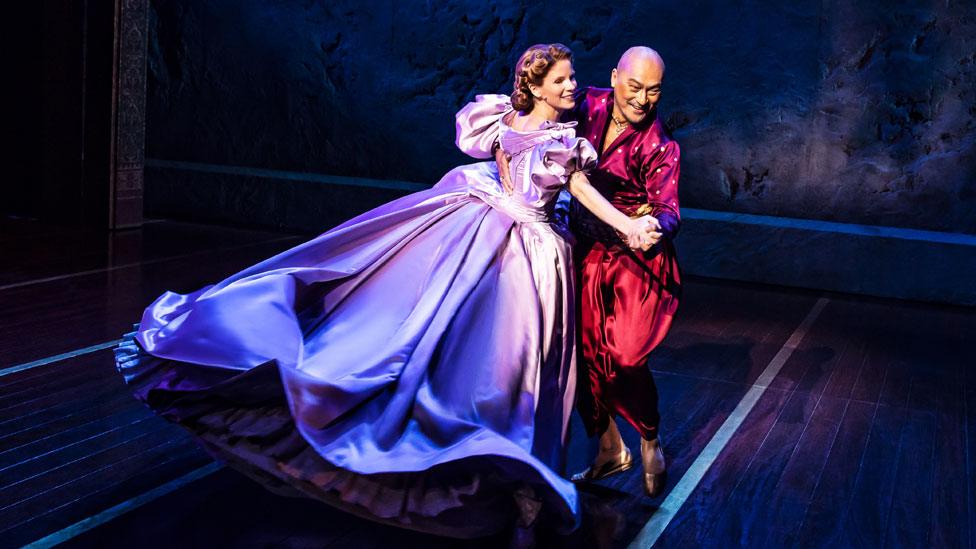
Shall We Dance? is perhaps The King and I's best-known song
The King and I is back in the West End, 67 years on from its Broadway debut. Is the musical showing its age, or has it still something to say to modern audiences?
Shall we dance? That's the question posed by a new production of The King and I, Richard Rodgers and Oscar Hammerstein II's classic musical about East meeting West.
The show, about a 19th Century British widow who travels to Siam (now Thailand) to tutor its monarch's many children, boasts familiar tunes, adorable child actors and lavish production values.
Yet its portrait of a white woman being both fascinated and repelled by a society depicted as both backward and barbarous can't help but feel patronisingly out of step with modern sensibilities.
Reviewing the current production, which launched in New York in 2015 and won four Tonys, the Telegraph's Dominic Cavendish, external calls The King and I "one of the most problematic musicals of the 20th Century American canon."
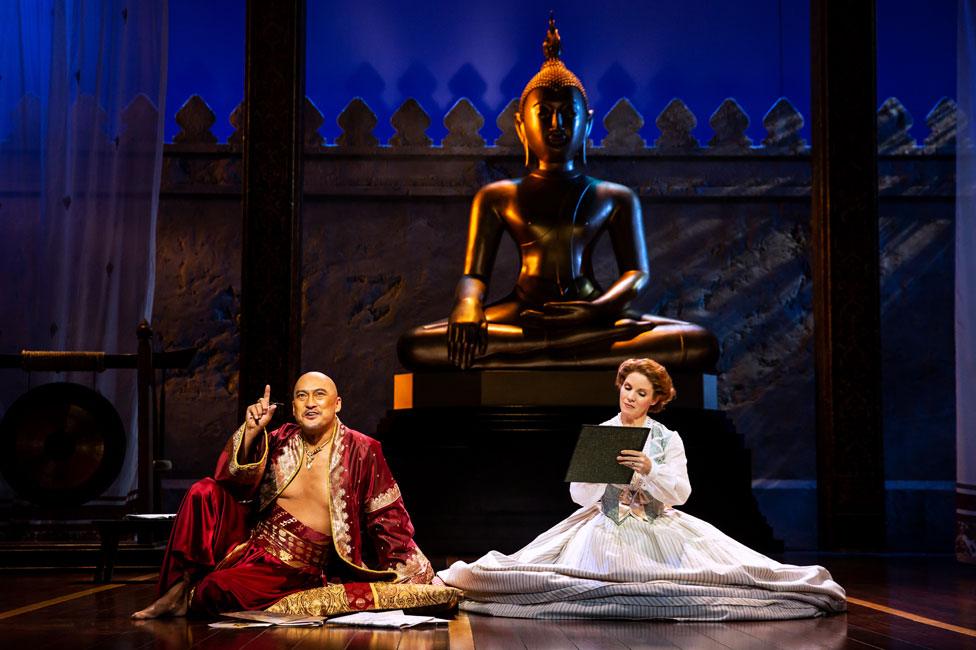
The musical is set in Siam, which changed its name to Thailand in 1939
Michael Billington expresses similar sentiments in The Guardian, external, saying it "seems to endorse the idea of the civilising influence of the west on the barbaric east."
The Independent's Paul Taylor, external detects "a smack of imperial condescension to this story of a widowed, well-bred Victorian governess who... gives a funny foreign despot... a stiff dose of Western values."
Time Out's Andrzej Lukowski, meanwhile, calls the musical "kind of racist, external... like an elderly relative who you make allowances for on grounds of age."
So should The King and I have been put out to pasture? Not according to director Bartlett Sher, who insists it remains "resonant, powerful and extremely well-conceived".
He also dismisses suggestions the piece has dated, saying its views on colonialism, gender equality and the conflict between modernity and tradition make it "as timely and powerful as ever".
"Do they say that about The Merchant of Venice?" he told the BBC after Tuesday's gala opening at the London Palladium.
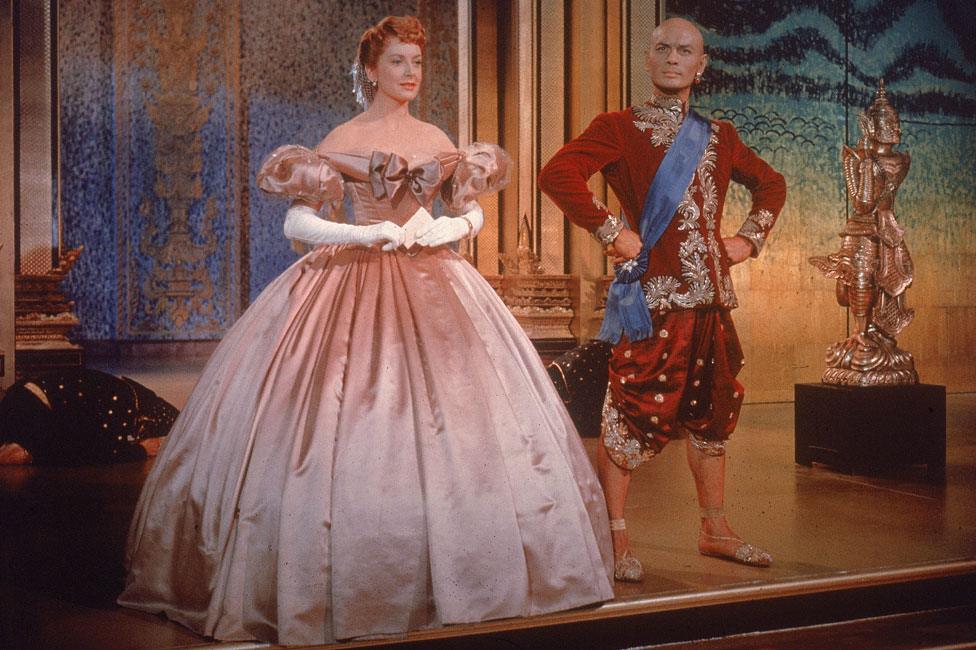
Deborah Kerr and Yul Brynner starred in the 1956 film version
"If you go into the British Museum or the National Gallery, do you say that painting's had its time? It doesn't make sense.
"Not everyone has to see the same things in it, but it has the same sort of information any great classic has."
For many, The King and I will always be associated with Yul Brynner, the Russian-born caucasian actor who played the King in the 1956 film version and thousands more times on stage.
According to The Stage, external, "the persistence of yellowface casting has always made the show seem insensitive in its portrayal of the East."
"Yellowface" refers to the casting of white actors as East Asian characters.
When The King and I was being created, Rex Harrison and Noel Coward were considered for the role of the King.
In the current production, however, King Mongkut is portrayed, as is now the custom, by an Asian performer.
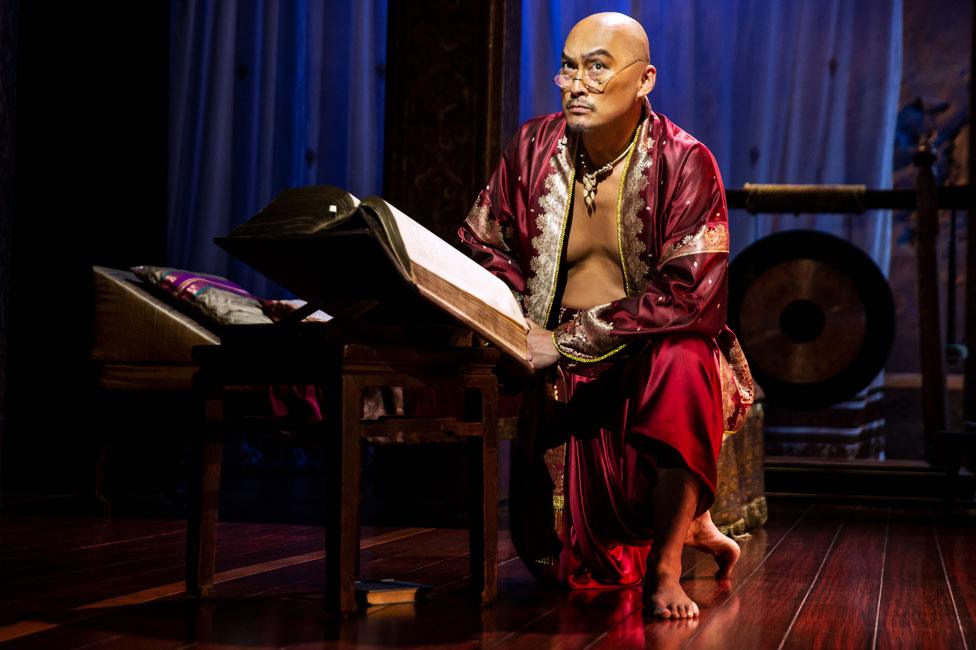
Ken Watanabe plays the King, a role that won Brynner an Oscar in 1957
That man is Ken Watanabe, the Japanese star of films including Memoirs of a Geisha and Letters from Iwo Jima, and who was Oscar-nominated in 2004 for The Last Samurai.
"You need someone with enormous stage skills and presence and Ken has that kind of stature," says Sher. "He brings the whole strength of Asia with him."
Watanabe - who listens to Beatles music in his dressing room to help him prepare - told the BBC the musical felt "very contemporary".
"Either Rodgers and Hammerstein were writing ahead of their time or we're not learning," agreed Kelli O'Hara, his Tony-winning co-star.
"We're still talking about understanding each other across certain lines, about gender equality and religious understanding. I can't think of a better time to be doing this again."
According to Sher, efforts have been made to avoid "decorative Orientalism" and to show the King of Siam being realistically "besieged on all sides by colonial forces".
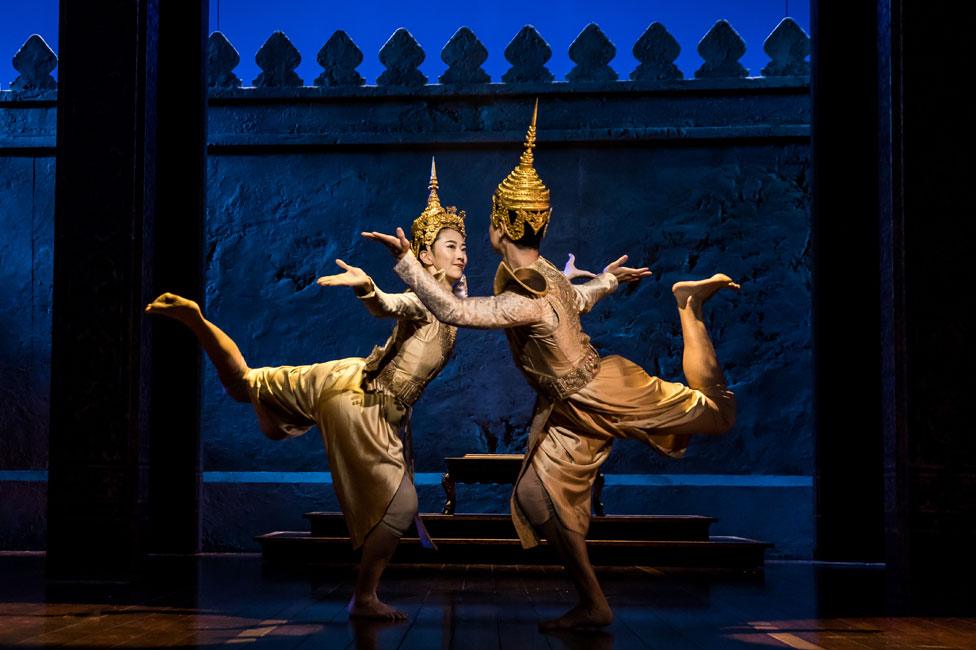
Catherine Zuber designed the production's exotic costumes
The real King Mongkut reigned from 1851 to 1868, embracing Western innovations and initiating Thailand's modernisation.
Sher's revival restores Western People Funny, a song frequently excised from previous productions, in which the women of Mongkut's court deride Westerners for being "sentimental about the Oriental".
"The song makes a lot of sense now," the director told the BBC. "It's an ironic commentary about how the West judges the East."
"I was so pleased Bart put the number back in because it balances things out," said the Japanese-born actress Naoko Mori, who shares the role of the song's singer, Lady Thiang, with Ruthie Ann Miles.
Though some critics have expressed reservations about the material, most are in agreement about the merits of its current incarnation.
The Mail's Quentin Letts describes the show as offering "a night of old-fashioned glamour, external", while The Times' Ann Treneman praises its "fabulous" set-pieces.
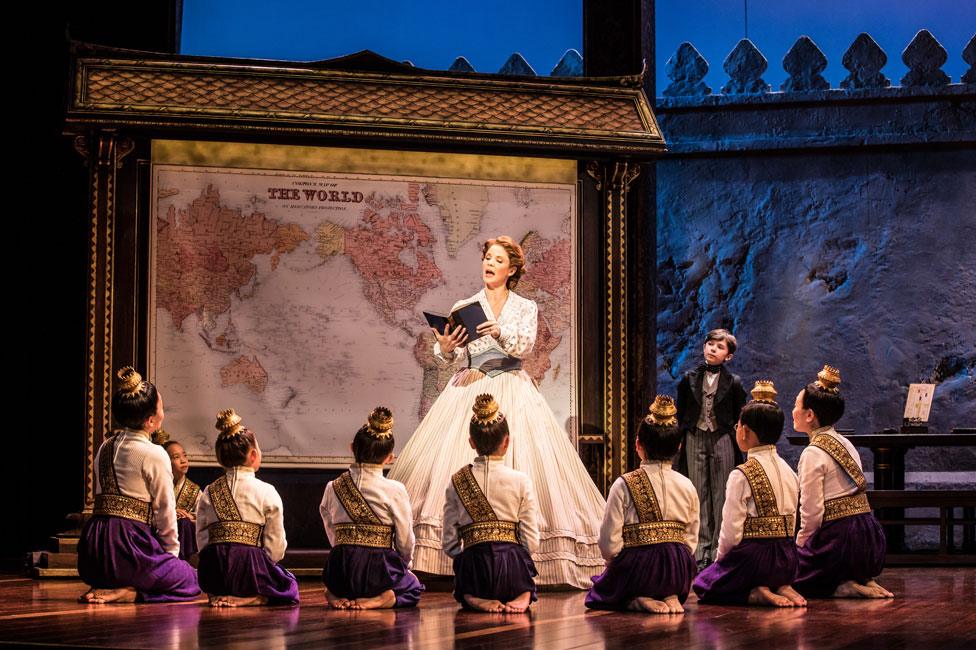
O'Hara won a Tony award for playing Anna, the 'I' of the title
"This musical is from the golden age of Broadway but is also absolutely rooted in another time past: a colonial age when Britain ruled the waves," Treneman continues in her five-star review, external.
"Sher embraces both legacies, doing justice to the deeper themes but never stinting on the spectacle."
All the critics, meanwhile, are unanimous in their praise of US actress O'Hara, who makes her West End debut - and sports a convincing English accent - as plucky governess Anna Leonowens.
"I've never heard Hello, Young Lovers better delivered," says The Guardian's critic, referring to one of Anna's soaring romantic numbers.
The Stage, meanwhile, says it is "a treat" to see an actress it glowingly calls "the Julie Andrews of the modern era".
Hugh Bonneville, Tamsin Greig and Dame Esther Rantzen were among the stars who chose Tuesday night's performance over England's World Cup win against Colombia.
The King and I continues at the London Palladium until 29 September.

Follow us on Facebook, external, on Twitter @BBCNewsEnts, external, or on Instagram at bbcnewsents, external. If you have a story suggestion email entertainment.news@bbc.co.uk, external.
- Published28 December 2017

- Published10 February 2016
